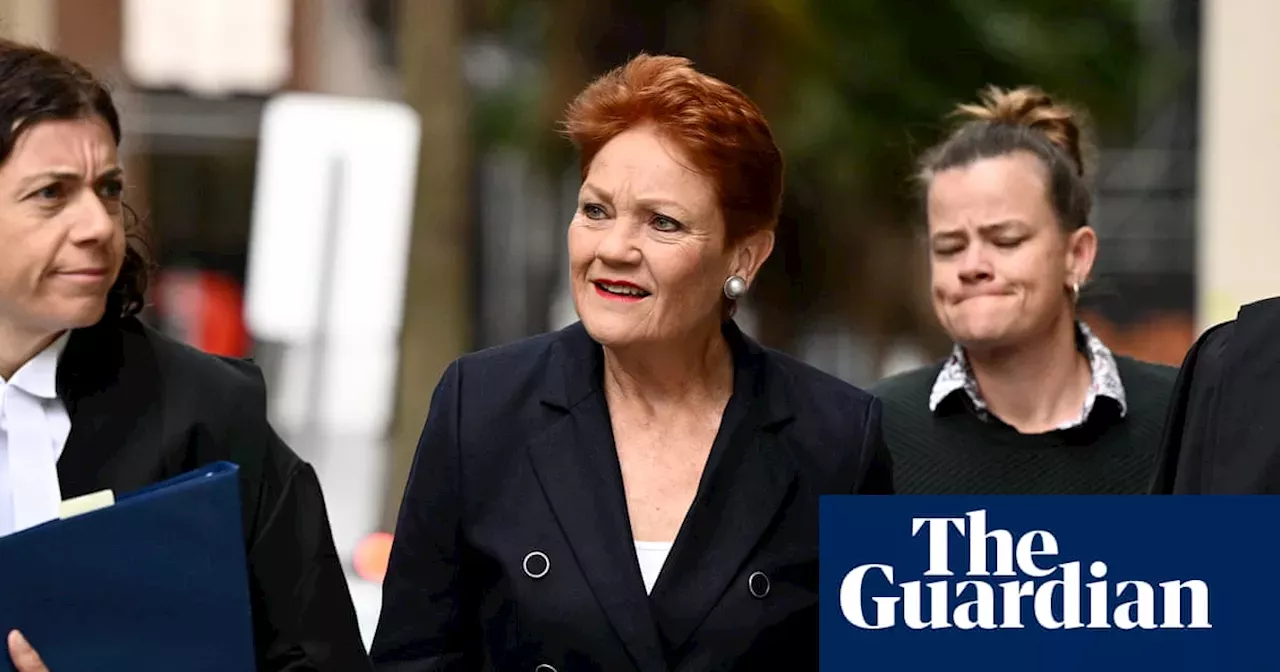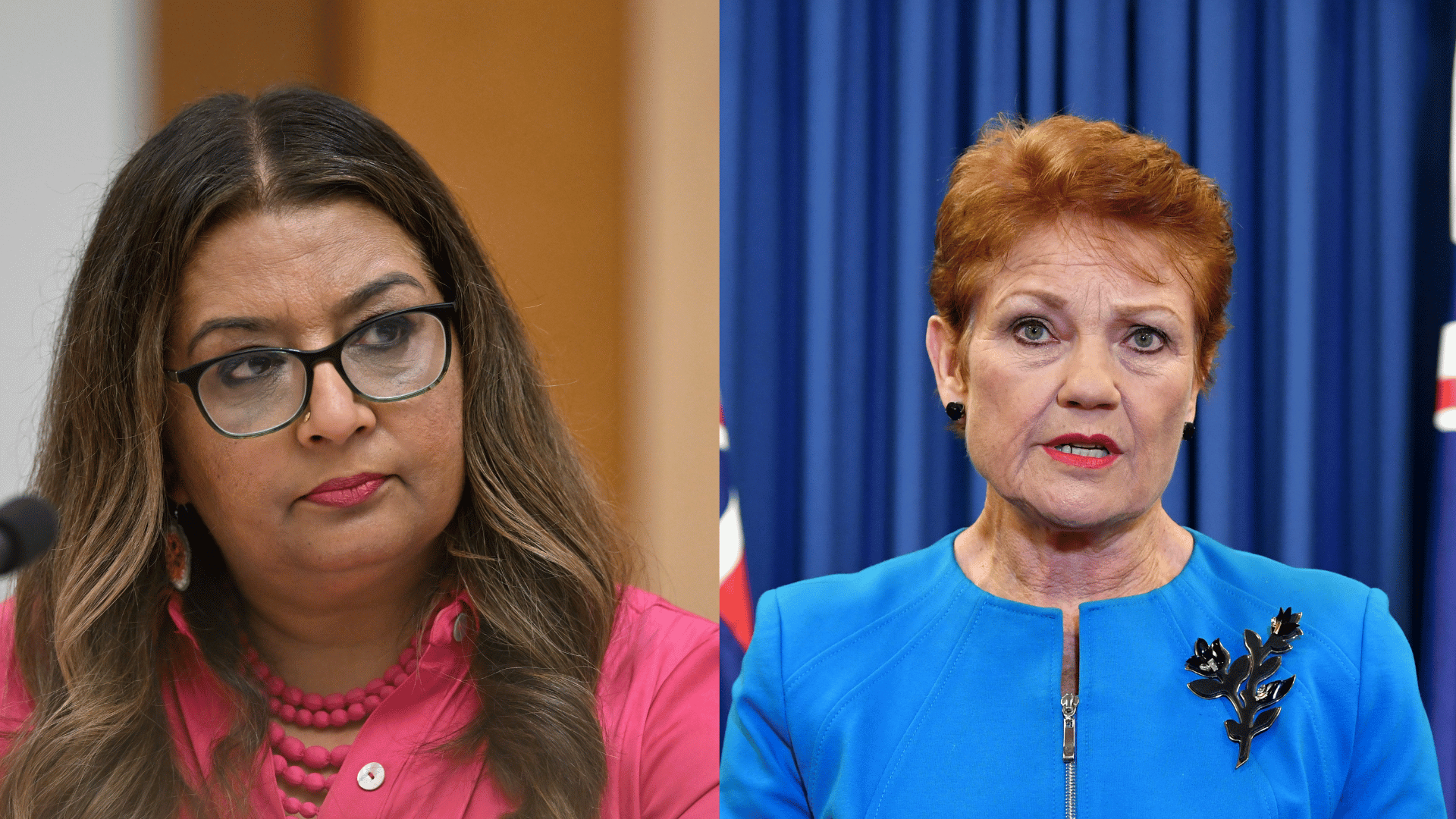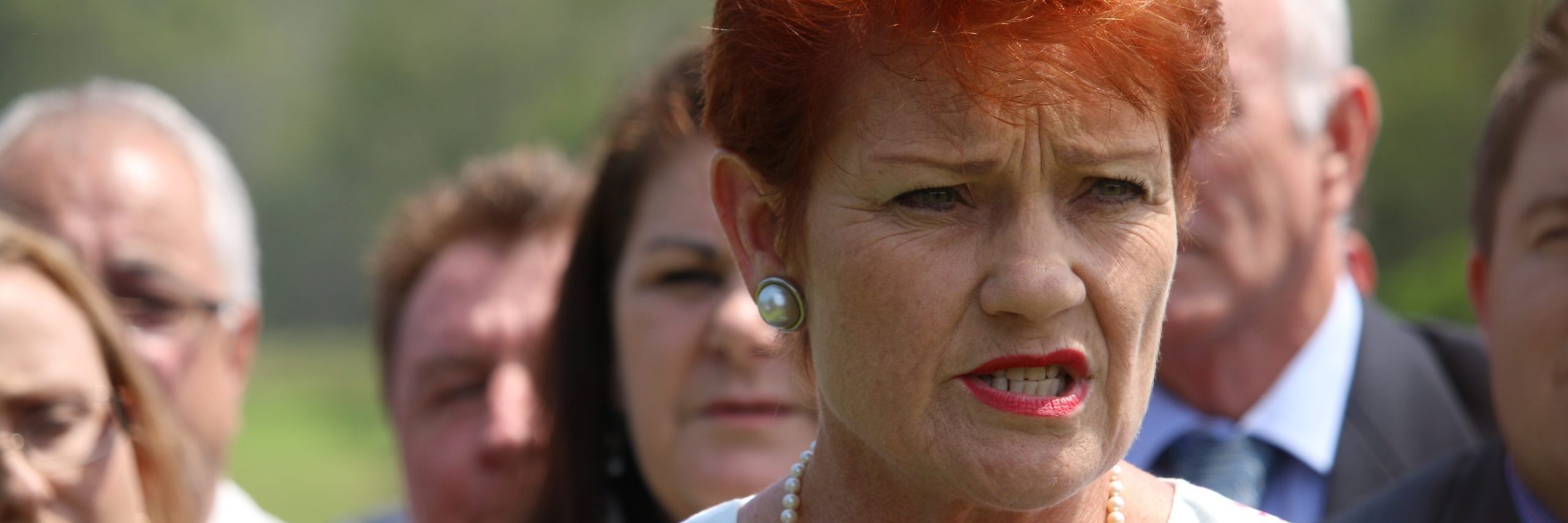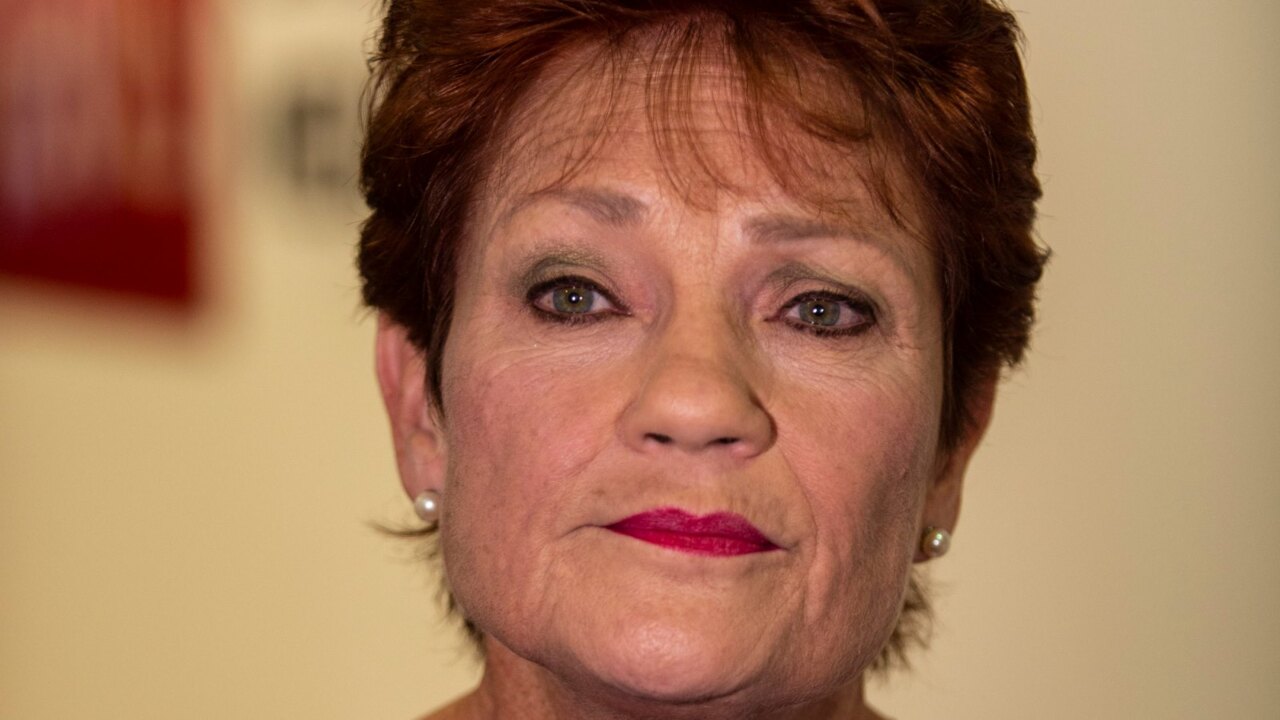Pauline Hanson Faruqi, a polarizing figure in Australian politics, has left an undeniable mark on the nation’s political landscape. Her journey, marked by controversy and advocacy, has shaped public discourse and influenced policy decisions. This article delves into her life, career, and impact on Australian politics.
From her humble beginnings to her rise as a political force, Pauline Hanson Faruqi has consistently challenged the status quo. Her unwavering stance on immigration, multiculturalism, and social justice has sparked both admiration and condemnation. As a senator, she has used her platform to advocate for marginalized groups and promote understanding among diverse communities.
Early Life and Education

Pauline Hanson Faruqi was born on 10 September 1961 in Leeds, England. She moved to Australia with her family at the age of four and grew up in Perth, Western Australia. She attended Curtin University, where she earned a Bachelor of Arts in politics and a Graduate Diploma in education.
Faruqi’s early experiences as an immigrant shaped her political views. She witnessed firsthand the discrimination and racism faced by many migrants and refugees, and this motivated her to become involved in politics to fight for social justice.
Education
Faruqi’s educational background provided her with the knowledge and skills necessary for a successful political career. Her studies in politics gave her a deep understanding of the political system and the challenges facing Australia. Her degree in education also gave her the ability to communicate effectively with people from all walks of life.
Influences
Faruqi’s political views were also influenced by her family and community. Her parents were both politically active, and she grew up in a household where social justice was a central value. She was also involved in community organizations that worked to promote the rights of migrants and refugees.
Political Career
Pauline Hanson Faruqi embarked on her political journey in the early 2000s, initially aligning herself with the One Nation party founded by Pauline Hanson. Faruqi shared One Nation’s concerns about immigration and multiculturalism, but she later parted ways with the party due to its increasingly far-right stance.
Independent Career
After leaving One Nation, Faruqi pursued an independent political path. She unsuccessfully contested the 2004 federal election as an independent candidate and later joined the Greens in 2009. Faruqi was drawn to the Greens’ progressive values, particularly their commitment to environmental protection and social justice.
One Nation Party
Pauline Hanson founded the One Nation Party in 1997. The party’s core principles include Australian nationalism, anti-immigration, and opposition to multiculturalism. It has consistently advocated for stricter immigration policies, reduced Muslim immigration, and a return to traditional Australian values.
Electoral Performance and Impact, Pauline Hanson Faruqi
One Nation has contested federal and state elections in Australia since its inception. The party achieved significant electoral success in the late 1990s and early 2000s, winning seats in the Queensland and Western Australian parliaments. However, its support has declined in recent years, and it currently holds no seats in any Australian parliament.
Controversies and Criticisms
The One Nation Party and its leaders have been the subject of numerous controversies. Hanson has been accused of racism, xenophobia, and Islamophobia. The party has also been criticized for its association with far-right and white supremacist groups.
Voter Base and Appeal
One Nation’s voter base primarily consists of white, working-class Australians who feel left behind by globalization and economic change. The party has appealed to voters who are concerned about immigration, multiculturalism, and the loss of traditional Australian values.
Relationship with Other Parties
One Nation has maintained a largely independent stance in Australian politics, refusing to form alliances with other major parties. However, it has occasionally supported conservative governments on specific issues.
Party Platform and Key Issues
One Nation’s platform focuses on Australian nationalism, immigration reduction, and a return to traditional values. The party opposes multiculturalism, same-sex marriage, and increased government spending on welfare programs.
History and Timeline
* 1997: Pauline Hanson founds the One Nation Party.
* 1998: One Nation wins 11 seats in the Queensland state election.
* 1999: One Nation wins four seats in the federal election.
* 2001: Hanson resigns from One Nation amid internal divisions.
* 2004: One Nation fails to win any seats in the federal election.
* 2007: Hanson returns to lead One Nation.
* 2016: One Nation wins four seats in the Queensland state election.
* 2019: One Nation fails to win any seats in the federal election.
Comparison to Other Parties
One Nation’s policies are significantly different from those of the major political parties in Australia. The party’s anti-immigration stance and opposition to multiculturalism set it apart from the Labor Party and the Liberal Party.
Impact on Australian Society
One Nation’s rise and fall have had a significant impact on Australian politics and society. The party’s success in the late 1990s and early 2000s highlighted the growing concerns among some Australians about immigration and multiculturalism. However, the party’s decline in recent years suggests that its message has become less appealing to the broader electorate.
Senate Representation
Pauline Hanson Faruqi was elected to the Australian Senate in 2016, representing the state of South Australia. She is the first Muslim woman elected to the Australian Parliament. As a senator, Faruqi has served on several committees, including the Senate Standing Committee on Legal and Constitutional Affairs and the Senate Standing Committee on Community Affairs. She has also been a vocal advocate for a range of issues, including human rights, environmental protection, and social justice.
Policy Interests and Contributions
Faruqi is a strong advocate for human rights, particularly the rights of women, children, and refugees. She has spoken out against the government’s treatment of asylum seekers and has called for an end to mandatory detention. She is also a vocal supporter of LGBTQ+ rights and has been a strong critic of the government’s same-sex marriage plebiscite.
In addition to her work on human rights, Faruqi is also a passionate advocate for environmental protection. She has called for stronger action on climate change and has been a vocal critic of the government’s support for the coal industry. She is also a strong supporter of renewable energy and has called for a transition to a clean energy future.
Faruqi is a regular contributor to Senate debates and has used her platform to speak out on a range of issues. She is known for her strong advocacy for her beliefs and her willingness to challenge the government. She is also a strong supporter of democracy and has called for greater transparency and accountability in government.
Advocacy for Multiculturalism
Pauline Hanson Faruqi is a staunch advocate for multiculturalism and believes in the strength of diversity. She promotes understanding and harmony among different cultural groups, recognizing the richness it brings to society.
Efforts to Promote Multiculturalism
Faruqi actively engages in initiatives that foster cultural exchange and dialogue. She regularly attends multicultural events, supports community organizations, and advocates for policies that promote inclusivity and diversity.
Impact on Australian Society and Politics
Faruqi’s advocacy has played a significant role in shaping Australian society and politics. Her efforts have contributed to a greater appreciation of cultural diversity and a more inclusive political landscape.
Strengths of Her Approach
- Emphasizes the value of cultural exchange and understanding.
- Promotes policies that support multiculturalism and inclusivity.
- Engages with diverse communities to foster dialogue and collaboration.
Weaknesses of Her Approach
- May face resistance from those who hold opposing views on immigration and multiculturalism.
- Balancing the needs of different cultural groups can be challenging.
- Ensuring that multiculturalism does not lead to cultural fragmentation requires careful navigation.
Examples of Her Advocacy
- Spoke out against divisive rhetoric and hate speech aimed at minority groups.
- Introduced a bill to establish a national day to celebrate cultural diversity.
- Supported funding for community organizations that promote multiculturalism and cultural exchange.
Pauline Hanson Faruqi’s Environmental Activism and Stance on Climate Change and Sustainability
Pauline Hanson Faruqi, an Australian politician, has been a vocal advocate for environmental protection and sustainability. She believes that climate change is a serious threat to the planet and that urgent action is needed to address it. Faruqi has been involved in numerous environmental campaigns and has played a key role in developing green policies.
Environmental Campaigns and Advocacy
Faruqi has been involved in various environmental campaigns, including the fight against coal mining in the Galilee Basin, the protection of the Great Barrier Reef, and the promotion of renewable energy. She has also been a strong advocate for reducing plastic pollution and waste.
Environmental Legislation and Policy Development
Faruqi has made significant contributions to environmental legislation and policy development. She was instrumental in the passage of the Climate Change Authority Amendment Bill 2014, which strengthened the independence of the Climate Change Authority. She has also been a strong advocate for increasing funding for renewable energy research and development.
Impact on Environmental Outcomes
Faruqi’s environmental activism has had a positive impact on environmental outcomes in Australia. Her work has helped to raise awareness of climate change and sustainability issues, and has led to the development of stronger environmental policies.
Comparison to Other Australian Politicians
Compared to other Australian politicians, Faruqi has a strong environmental record. She has been a consistent advocate for environmental protection and sustainability, and has played a key role in developing green policies.
Challenges and Obstacles
Faruqi has faced a number of challenges and obstacles in promoting environmental causes. She has been criticized by some for being too radical and for not being pragmatic enough. However, she has remained steadfast in her commitment to environmental protection.
Effectiveness and Legacy
Pauline Hanson Faruqi is an effective environmental advocate who has made a significant contribution to the environmental movement in Australia. Her work has helped to raise awareness of climate change and sustainability issues, and has led to the development of stronger environmental policies. She is a role model for other environmental activists and her legacy will continue to inspire future generations.
Social Justice Issues
Pauline Hanson Faruqi is a strong advocate for social justice and has been vocal about her views on poverty, inequality, and human rights. She believes that everyone deserves a fair chance in life, regardless of their background or circumstances.
Advocacy for Marginalized Groups
Faruqi is a passionate advocate for marginalized groups, including refugees, asylum seekers, and Indigenous Australians. She has spoken out against the treatment of these groups and has called for more support and protection for them. She is also a strong supporter of same-sex marriage and has campaigned for LGBTQI+ rights.
Leadership Style

Pauline Hanson Faruqi has developed a distinct leadership style that combines a strong focus on representing the concerns of her constituents with a willingness to challenge the status quo. Her approach has both strengths and weaknesses, but it has also allowed her to connect with voters and build a loyal following.
One of Hanson Faruqi’s greatest strengths as a leader is her ability to connect with voters on a personal level. She is known for her down-to-earth demeanor and her willingness to listen to the concerns of her constituents. This has helped her to build a strong rapport with voters, who see her as someone who is genuinely interested in their well-being.
Another strength of Hanson Faruqi’s leadership style is her willingness to challenge the status quo. She is not afraid to speak out against injustice, even when it is unpopular. This has earned her the respect of many voters, who see her as a fearless advocate for their interests.
However, Hanson Faruqi’s leadership style also has some weaknesses. One of her biggest challenges is her tendency to be impulsive. She has a habit of making decisions without fully considering the consequences, which has sometimes led to her making mistakes.
Another weakness of Hanson Faruqi’s leadership style is her lack of experience in government. She has only been a senator for a few years, and she has never held a position in the executive branch. This lack of experience has sometimes made it difficult for her to navigate the complex world of politics.
Despite her weaknesses, Hanson Faruqi has been a successful leader. She has been able to connect with voters and build a loyal following. She has also been able to challenge the status quo and make a difference in the lives of her constituents.
Comparison to Other Political Figures
Hanson Faruqi’s leadership style is similar to that of other populist leaders, such as Donald Trump and Nigel Farage. These leaders all share a strong focus on representing the concerns of their constituents and a willingness to challenge the status quo. They are also all known for their use of social media to connect with voters.
However, Hanson Faruqi also has some unique qualities that distinguish her from other populist leaders. She is more focused on social justice issues than many other populist leaders, and she is also more willing to work with other parties to achieve her goals.
Effectiveness of Her Leadership Style
Hanson Faruqi’s leadership style has been effective in achieving her political goals. She has been able to connect with voters and build a loyal following. She has also been able to challenge the status quo and make a difference in the lives of her constituents.
However, Hanson Faruqi’s leadership style has also had some negative consequences. Her impulsivity has sometimes led to her making mistakes, and her lack of experience in government has sometimes made it difficult for her to navigate the complex world of politics.
Overall, Hanson Faruqi’s leadership style has been both effective and ineffective. She has been able to achieve some of her goals, but she has also made some mistakes along the way.
Specific Examples of Her Leadership Style in Action
- In 2017, Hanson Faruqi led a successful campaign to ban the burqa in public places. This was a controversial decision, but it was popular with many of her constituents.
- In 2018, Hanson Faruqi spoke out against the government’s decision to recognize Jerusalem as the capital of Israel. This was a courageous decision, as it went against the views of many of her constituents.
- In 2019, Hanson Faruqi led a successful campaign to increase the minimum wage. This was a major victory for her, as it had been a key goal of hers since she was first elected.
Impact on Australian Politics
Pauline Hanson Faruqi has had a significant impact on Australian politics, both positive and negative. Her rhetoric has contributed to the polarization of public discourse and has been accused of fueling social division. However, she has also been credited with raising awareness of issues such as immigration and multiculturalism.
Role in Shaping Public Discourse
Hanson Faruqi’s outspoken views have often sparked controversy and debate. Her comments on immigration, Islam, and welfare have been widely condemned by many, but they have also resonated with a significant portion of the Australian public.
Influence on Policy Decisions
Hanson Faruqi’s influence on policy decisions has been limited, but she has played a role in shaping the agenda of the major parties. Her focus on immigration and border security has forced both Labor and the Coalition to adopt more restrictive policies in these areas.
Impact on Political Polarization
Hanson Faruqi’s rhetoric has contributed to the polarization of Australian politics. Her divisive comments have alienated many voters, but they have also energized her supporters. This polarization has made it more difficult for the major parties to find common ground and has contributed to the current political impasse.
Impact on Social Cohesion
Hanson Faruqi’s views on immigration and multiculturalism have been criticized for fueling social division. Her comments have been blamed for increasing fear and mistrust among different cultural groups in Australia.
Effectiveness of Policies
The effectiveness of Hanson Faruqi’s policies is difficult to assess. Her policies on immigration and welfare have been criticized for being impractical and ineffective. However, her focus on these issues has resonated with a significant portion of the Australian public.
Impact on Specific Demographics
Hanson Faruqi’s policies have had a significant impact on specific demographics. Her focus on immigration has been popular with older voters and those who live in rural areas. However, her views on welfare have been criticized by many low-income earners.
Compare Pauline Hanson Faruqi’s political views and approach to those of other Australian politicians, both past and present.
Pauline Hanson Faruqi’s political views and approach are unique in the Australian political landscape. She is a strong advocate for multiculturalism, environmental protection, and social justice. Her views are often compared to those of other Australian politicians, both past and present.
One of the most notable similarities between Hanson Faruqi and other Australian politicians is their commitment to multiculturalism. Australia is a diverse country with a long history of immigration. As a result, many Australian politicians have made multiculturalism a central part of their platforms.
However, Hanson Faruqi’s approach to multiculturalism is somewhat different from that of other Australian politicians. She is a strong advocate for the rights of Muslim Australians and has been critical of the government’s counter-terrorism policies. She has also spoken out against racism and discrimination.
Another similarity between Hanson Faruqi and other Australian politicians is their commitment to environmental protection. Australia is a country with a unique and fragile environment. As a result, many Australian politicians have made environmental protection a central part of their platforms.
However, Hanson Faruqi’s approach to environmental protection is somewhat different from that of other Australian politicians. She is a strong advocate for renewable energy and has been critical of the government’s support for the coal industry. She has also spoken out against the destruction of the Great Barrier Reef.
Finally, Hanson Faruqi is a strong advocate for social justice. She believes that all Australians should have access to the same opportunities, regardless of their background. She has spoken out against poverty, inequality, and discrimination.
Hanson Faruqi’s commitment to social justice is similar to that of many other Australian politicians. However, her approach is somewhat different. She is a strong advocate for the rights of refugees and asylum seekers. She has also spoken out against the government’s welfare reforms.
Overall, Pauline Hanson Faruqi is a unique and important voice in Australian politics. Her commitment to multiculturalism, environmental protection, and social justice sets her apart from other Australian politicians. Her views are often compared to those of other Australian politicians, both past and present. However, her approach is somewhat different, and she is not afraid to speak out against the government when she believes it is necessary.
Media Coverage and Public Perception
Pauline Hanson Faruqi has been a controversial figure in Australian politics, and her media coverage reflects this. She has been both praised and criticized for her outspoken views, and her public perception has fluctuated accordingly.
Early in her career, Hanson Faruqi was often portrayed as a firebrand, and her comments on immigration and multiculturalism were met with widespread condemnation. However, in recent years, she has moderated her views somewhat, and her media coverage has become more positive. She is now seen as a more mainstream politician, and her views on issues such as climate change and social justice are more widely accepted.
Media Bias
Some critics have accused the media of being biased against Hanson Faruqi, and of giving her unfair or negative coverage. Others argue that the media is simply reporting on her controversial views, and that she should not be immune from criticism. It is difficult to say definitively whether or not the media is biased against Hanson Faruqi, but it is clear that her coverage has been both positive and negative.
Legacy and Future Prospects
Pauline Hanson Faruqi’s legacy in Australian politics is still being written, but she has already made a significant impact. As the first Muslim woman elected to the Australian Senate, she has broken down barriers and inspired countless others. Her outspoken advocacy for multiculturalism and social justice has challenged the status quo and sparked important conversations about the future of Australia.
Potential Future Prospects
Faruqi’s future prospects are bright. She is a rising star in the Australian political landscape, and her popularity is only growing. She is likely to continue to play a leading role in shaping the future of the country, both in the Senate and beyond. Her commitment to social justice and environmental sustainability is sure to resonate with voters for years to come.
Organize content into an HTML table with four responsive columns, highlighting key points from each .

This section provides a comprehensive overview of Pauline Hanson Faruqi’s political career, focusing on her key achievements and contributions as a senator.
Senate Representation
- Elected as the first Muslim senator in Australian history in 2016
- Served as the Deputy Leader of the Australian Greens from 2018 to 2020
- Current member of the Senate Standing Committee on Environment and Communications
Advocacy for Multiculturalism
- Strong advocate for multiculturalism and diversity in Australia
- Spokesperson for the Australian Greens on multicultural affairs
- Co-chair of the Parliamentary Friends of Multiculturalism
Pauline Hanson Faruqi’s Environmental Activism
- Passionate advocate for environmental protection and climate action
- Co-chair of the Parliamentary Friends of Climate Action
- Introduced the Climate Change (National Framework for Adaptation and Mitigation) Bill 2022
Stance on Climate Change and Sustainability
- Believes climate change is a real and urgent threat
- Supports a rapid transition to renewable energy and a zero-emissions economy
- Calls for greater investment in public transport and active transport
Social Justice Issues
- Strong advocate for social justice and equality
- Spokesperson for the Australian Greens on social justice
- Co-chair of the Parliamentary Friends of Palestine
Leadership Style
- Known for her strong leadership and unwavering commitment to her principles
- Effective communicator and advocate for progressive policies
- Respected by colleagues across the political spectrum
Impact on Australian Politics
- Made significant contributions to Australian politics and public discourse
- Increased visibility and representation of Muslim Australians in government
- Challenged the status quo and pushed for progressive change
Pauline Hanson Faruqi’s Notable Achievements and Contributions

Pauline Hanson Faruqi, an Australian politician, has made significant contributions to social justice and environmental protection throughout her career. Her work as a senator and advocate has led to notable achievements and legislative accomplishments that have impacted public policy.
Faruqi’s early life and education shaped her passion for social justice. Born in Bangladesh and raised in Australia, she experienced firsthand the challenges faced by marginalized communities. Her political career began in 2014 when she was elected as a Greens senator for New South Wales.
Political Achievements
- Introduced and passed legislation to establish a national anti-corruption commission, strengthening accountability and transparency in government.
- Advocated for and supported policies that promote gender equality, including the establishment of paid parental leave and increased funding for childcare.
- Played a key role in the passage of the Modern Slavery Act 2018, which aims to combat modern slavery and human trafficking.
Environmental Advocacy
- Led the campaign to ban single-use plastic bags in New South Wales, reducing plastic pollution and protecting the environment.
- Spoke out against the Adani coal mine project, highlighting its potential negative impacts on the Great Barrier Reef and climate change.
- Advocated for increased investment in renewable energy and clean technology, promoting a sustainable future for Australia.
Final Conclusion
Pauline Hanson Faruqi’s legacy is complex and contested. Her impact on Australian politics is undeniable, as she has shifted the Overton window on issues such as immigration and multiculturalism. Whether her contributions will ultimately be viewed as positive or negative remains to be seen. However, there is no doubt that she has left a lasting impression on the nation’s political landscape.
FAQ Guide: Pauline Hanson Faruqi
What are Pauline Hanson Faruqi’s key policy positions?
Pauline Hanson Faruqi’s key policy positions include reducing immigration, promoting Australian values, and supporting traditional families. She also advocates for increased border security and a reduction in foreign aid.
What is Pauline Hanson Faruqi’s stance on multiculturalism?
Pauline Hanson Faruqi believes that multiculturalism has failed in Australia and has led to the creation of parallel societies. She advocates for a more cohesive society based on shared Australian values.
What are some of Pauline Hanson Faruqi’s most notable achievements?
Pauline Hanson Faruqi’s most notable achievements include being elected to the Australian Senate in 2016 and 2019, and serving as the leader of the One Nation party since 2014. She has also been a vocal advocate for immigration reduction and Australian values.


